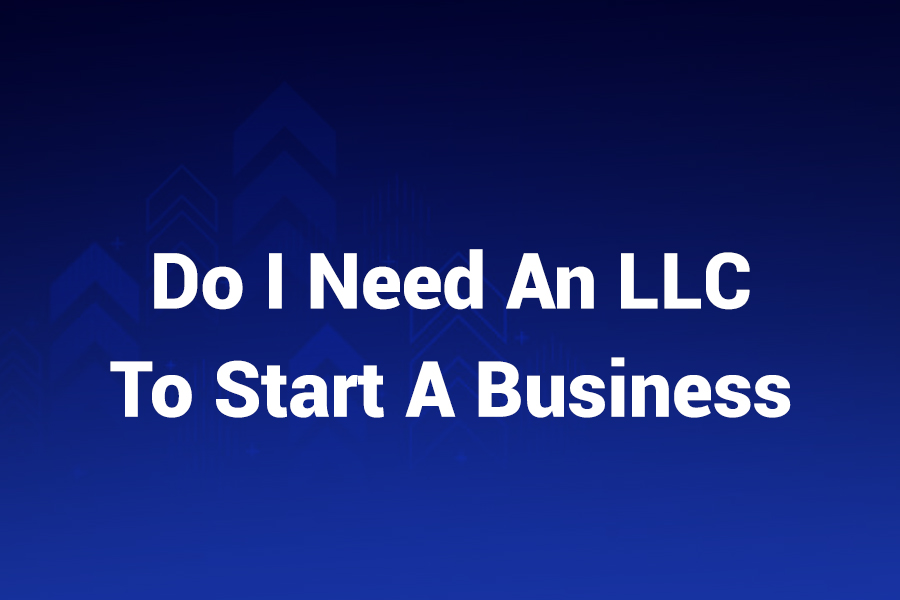- Home
- Our Services
- PedroVazPaulo Coaching
- PedroVazPaulo Executive Coaching
- PedroVazPaulo Marketing Consulting
- PedroVazPaulo Entrepreneur
- PedroVazPaulo Real Estate Investment
- Pedro Paulo Business Consultant
- PedroVazPaulo Wealth Investment
- PedroVazPaulo Business Consultant
- PedroVazPaulo Operations Consulting
- PedroVazPaulo Strategy Consulting
- Blog
- About
- Contact

Starting a business is exciting, but deciding whether you need to form a Limited Liability Company (LLC) can be confusing. The truth is, you do not need an LLC to start a business in the United States — but setting one up can offer significant benefits.
In this article, you’ll learn when forming an LLC is beneficial, when you can operate without one, and how to decide what’s best for your specific situation.
What an LLC Actually Is
An LLC, or Limited Liability Company, is a legal structure that separates you (the owner) from your business. Owners are called “members,” and the LLC itself can own property, open bank accounts, and enter contracts in its own name. This structure helps protect your personal assets from business debts or lawsuits.
An LLC also provides tax flexibility. By default, it’s taxed as a pass-through entity — meaning profits and losses are reported on your personal tax return — but you can elect to have it taxed as an S-corp or C-corp for strategic benefits.
Do You Have to Form an LLC to Start Your Business?
The short answer is no. You can legally start and operate a business as a sole proprietorship or a partnership without forming an LLC. If you sell a service, launch an online store, or open a local shop under your own name, you’re automatically considered a sole proprietor.
However, not forming an LLC means there’s no legal separation between your business and your personal assets. If something goes wrong, creditors or legal claims can reach your personal savings, car, or even home.
Why Some Entrepreneurs Start Without an LLC
There are practical reasons many people start without forming an LLC:
- Lower startup costs: Filing for an LLC usually requires state registration fees, which can range from $50 to $500, depending on the state.
- Simplicity: As a sole proprietor, you don’t need to file separate business tax returns or maintain detailed compliance paperwork.
- Testing the business idea: Many new entrepreneurs prefer to test their ideas and build traction before spending money on legal structures.
- Low-risk operations: If your business carries minimal risk — for example, freelance writing, tutoring, or consulting — you may not need an LLC immediately.
When You Should Consider an LLC from Day One
Forming an LLC right from the start makes strong sense if any of the following apply:
- You have personal assets to protect. If you own a home, vehicle, or significant savings, an LLC shields these from potential lawsuits or business debts.
- Your business involves risk. Selling physical products, offering professional advice, or having customers visit your premises increases your exposure to liability.
- You plan to hire employees or sign contracts. An LLC makes it easier to create formal agreements and protect your interests.
- You want tax flexibility. LLCs allow different taxation methods, which can help you minimize tax burden as your business grows.
- You want credibility. Many clients, vendors, and banks view LLCs as more established and trustworthy than sole proprietorships.
Advantages and Disadvantages of an LLC
Advantages:
- Limited liability protection: Your personal assets are generally safe if the business faces debt or legal issues.
- Tax flexibility: You can choose how your LLC is taxed, optimizing for your financial goals.
- Professional image: Having “LLC” in your business name enhances credibility and trust.
- Easy management: Unlike corporations, LLCs have fewer formalities and simpler recordkeeping requirements.
Disadvantages:
- Costs: You’ll pay state filing fees and possibly annual renewal fees or franchise taxes.
- More paperwork: You’ll need to maintain separate financial records and bank accounts for the business.
- Self-employment taxes: In many cases, LLC owners pay self-employment taxes on profits, though this can be reduced with proper tax elections.
Sole Proprietorship vs. LLC: What’s the Difference?
| Feature | Sole Proprietorship | LLC |
| Legal protection | No separation between personal and business assets | Personal liability protection |
| Startup cost | Free or minimal | Varies by state ($50–$500) |
| Tax filing | Reported on personal return | Pass-through or corporate options |
| Compliance | Minimal paperwork | Requires formation and maintenance |
| Perception | Informal | More professional and credible |
If your business involves any kind of legal or financial risk, the protection and credibility an LLC provides are usually worth the cost.
When to Form an LLC
Timing is key. You can start as a sole proprietor and form an LLC later when your business begins earning consistent income or facing more exposure. However, it’s wise to form one sooner if you:
- Have significant personal assets
- Sign contracts or take on liability
- Expect to grow quickly or hire employees
- Need to open business bank accounts or get financing
How to Form an LLC in the U.S.
Creating an LLC is simpler than many people think. The basic steps include:
- Choose a business name: Ensure it’s unique and meets your state’s naming requirements.
- File Articles of Organization: Submit the official registration documents with your state’s business office.
- Appoint a registered agent: This person or service receives legal documents on behalf of your business.
- Create an Operating Agreement: Defines ownership percentages, responsibilities, and rules among members.
- Get an EIN (Employer Identification Number): Required for taxes and opening a business bank account.
- Open a business bank account: Keep finances separate to maintain liability protection.
- Comply with local regulations: Check local permits, zoning laws, and industry-specific licenses.
Costs of Starting an LLC
Each state sets its own LLC fees. On average, forming an LLC costs between $50 and $300. A few states like California or Massachusetts may charge higher initial fees and annual franchise taxes.
Additionally, you might spend around $100–$200 yearly for registered agent services and compliance reports. These are modest costs considering the protection and credibility an LLC provides.
Tax Considerations
LLCs offer flexibility that sole proprietorships do not. By default, single-member LLCs are taxed like sole proprietors, while multi-member LLCs are taxed as partnerships. However, you can elect S-Corp status to reduce self-employment taxes once profits grow beyond a certain level.
It’s best to consult a certified tax professional to choose the most efficient setup for your business goals.
State Differences Matter
Laws, fees, and requirements vary by state. Some states are more business-friendly than others. For example, Wyoming, Delaware, and Nevada are known for low fees and strong privacy protections. On the other hand, states like California and New York have higher ongoing costs.
Always check your state’s small business website for accurate information before filing.
What Happens If You Start Without an LLC and Form It Later
Many entrepreneurs begin as sole proprietors and later transition into an LLC as the business grows. When you form the LLC, you’ll need to transfer your existing assets and contracts to the new entity, update tax records, and notify your clients and vendors.
Keep in mind that any debts or liabilities incurred before forming your LLC remain your personal responsibility. Forming an LLC protects you moving forward, but it won’t erase previous risks.
Key Takeaways
- You do not need an LLC to start a business, but forming one can protect your personal assets.
- Start as a sole proprietor if your risk is low or you’re testing an idea.
- Form an LLC when your business grows, earns revenue, or takes on more liability.
- An LLC provides flexibility, credibility, and peace of mind as your company scales.
- Keep business finances separate from personal accounts to maintain legal protection.
Final Thoughts
With three decades of experience advising small business owners, I can say this confidently: forming an LLC is one of the best long-term moves you can make once your business starts to grow. It offers legal protection, tax advantages, and the professional credibility needed to compete in today’s market.
You don’t need an LLC to start your business — but if you’re serious about building something lasting, it’s a smart investment that safeguards your success.






